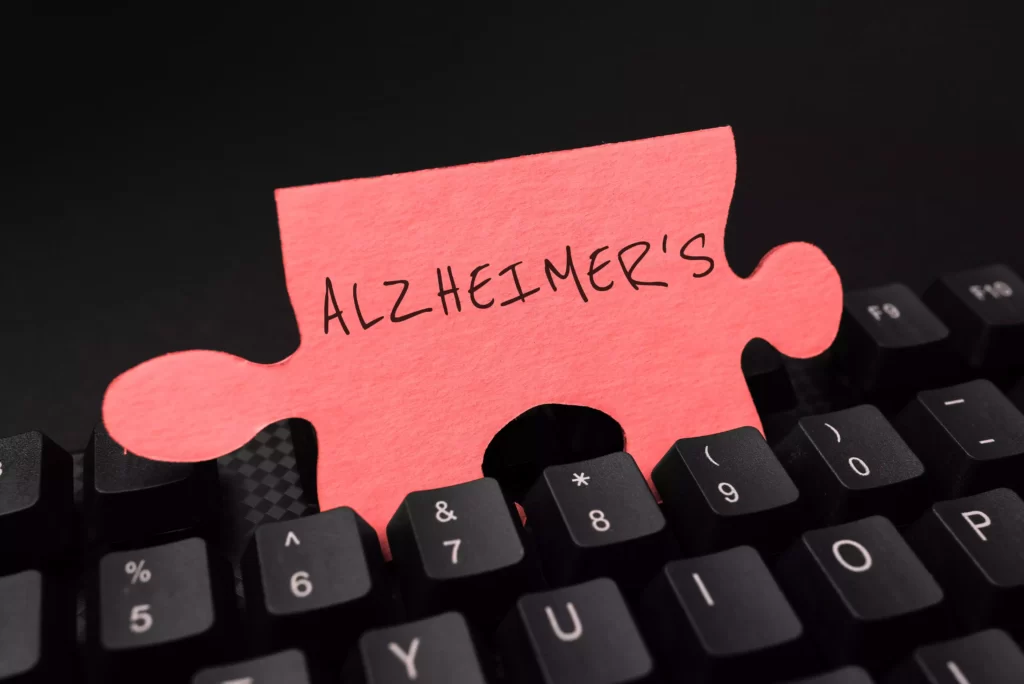Demystifying Dementia and Alzheimer’s
Intro
Welcome back to the blog post about Demystifying Dementia and Alzheimer’s.
The two concepts are commonly misunderstood and interchanged, yet it is crucial to recognize that both are distinct.
This post explores the similarities and differences between these conditions and their impact on individuals’ lives.
Dementia is a condition that involves a variety of cognitive deficiencies, causing memory loss, impaired thinking skills, behavioral changes, and difficulties with social interactions.
The severity of these symptoms can significantly affect daily functioning.
Dementia can result from various diseases or conditions that damage brain cells, including vascular disease, Parkinson’s disease, or even infections like HIV.
On the one hand, Alzheimer’s disease is considered a specific type of dementia. It is regarded as the most prevalent form of dementia, affecting approximately 60-80% of all dementia cases.
Alzheimer’s predominantly affects older individuals, although there are some rare cases of early-onset Alzheimer’s that can occur before the age of 65.
This progressive neurological disorder gradually impairs memory and thinking skills, eventually affecting even the simplest tasks.
By recognizing the distinctions between dementia and Alzheimer’s disease, individuals with these conditions can be better equipped to navigate the unique challenges faced by them.
This blog will analyze the causes, symptoms, and potential treatment options for dementia and Alzheimer’s.
By acquiring this knowledge, it is possible to offer better support to those living with these conditions and their families, thereby leading to greater understanding and compassion.
Let’s explore the fascinating world of dementia and Alzheimer’s disease and deconstruct the complexities surrounding them.
What is Dementia?
Dementia is categorized as a neurological disorder causing a decline in memory, thinking skills, behavior, and social abilities that affect a person’s daily functioning.
Cognitive impairment is a term that encompasses various diseases and conditions that lead to damage to brain cells.
Common symptoms of dementia include memory impairment, difficulty in communication, confusion, and behavioral changes.
Dementia affects millions of people across the globe and can be triggered by conditions like Alzheimer’s, vascular dementia, and frontotemporal dementia.
Understanding dementia is crucial to providing appropriate care and support to those and their families affected by this complex condition.

Symptoms of Dementia
Dementia is characterized by symptoms that adversely affect an individual’s memory, cognitive abilities, behavior, and social skills.
Common symptoms of dementia include memory impairment, confusion, difficulty with language and communication, disorientation, impairment of judgment, and changes in mood or personality.
Furthermore, individuals with dementia may experience problems with motor skills such as coordination and balance.
These symptoms gradually intensify over time, affecting daily activities and independence.
Recognizing and comprehending these symptoms is crucial to providing appropriate support and care for individuals with dementia.
What is Alzheimer’s Disease?
Alzheimer’s disease is a progressive brain disorder mainly affecting older adults. Dementia is widely regarded as the primary cause and accounts for approximately 60-80% of all dementia cases.
This disease slowly affects memory, thinking skills, and the ability to perform daily activities. It is a neurological disorder that causes the accumulation and destruction of brain cells.
As the disease progresses, individuals with Alzheimer’s may experience confusion, disorientation, changes in personality, and difficulty speaking.
Providing the best possible care to those with Alzheimer’s disease requires early diagnosis and tailored management strategies.

Symptoms of Alzheimer’s Disease
Alzheimer’s disease, a specific type of dementia, is characterized by a distinct set of symptoms focusing primarily on memory, thinking skills, and behavior.
Those with Alzheimer’s may have difficulty retaining new information, omitting essential dates or events, and struggling to maintain track of conversations or follow instructions.
Additionally, these individuals may show changes in mood or personality, such as being easily agitated or receptive.
Furthermore, individuals may experience difficulties performing basic daily activities like dressing or bathing as the condition progresses.
Identifying these symptoms aids in early detection and timely intervention, allowing individuals and their families to seek appropriate care and support.
Differences Between Dementia and Alzheimer’s Disease
Dementia and Alzheimer’s Disease are often used interchangeably, but it is crucial to understand the distinctions between them.
Dementia is an umbrella term for various cognitive impairments affecting memory, thinking skills, behavior, and social abilities.
It is caused by multiple diseases or conditions that damage brain cells over time. In contrast, Alzheimer’s Disease is a specific type of dementia that accounts for most cases.
It primarily affects older adults and is characterized by the buildup of abnormal proteins in the brain.
Recognizing these differences helps us better comprehend the impact of these conditions on individuals’ lives.
Conclusion
In conclusion, it is essential to differentiate between dementia and Alzheimer’s disease.
While dementia can refer to a broad spectrum of cognitive impairments, Alzheimer’s disease is a specific type of dementia.
Comprehending these differences enables a better understanding of their impact on individuals’ lives.
Both conditions adversely affect memory, thinking skills, behavior, and social abilities. However, Alzheimer’s disorder is the leading cause of dementia, especially among older adults.
By better understanding these conditions, healthcare professionals can offer more specialized care and support to those and their families affected by dementia or Alzheimer’s disease.







0 Comments